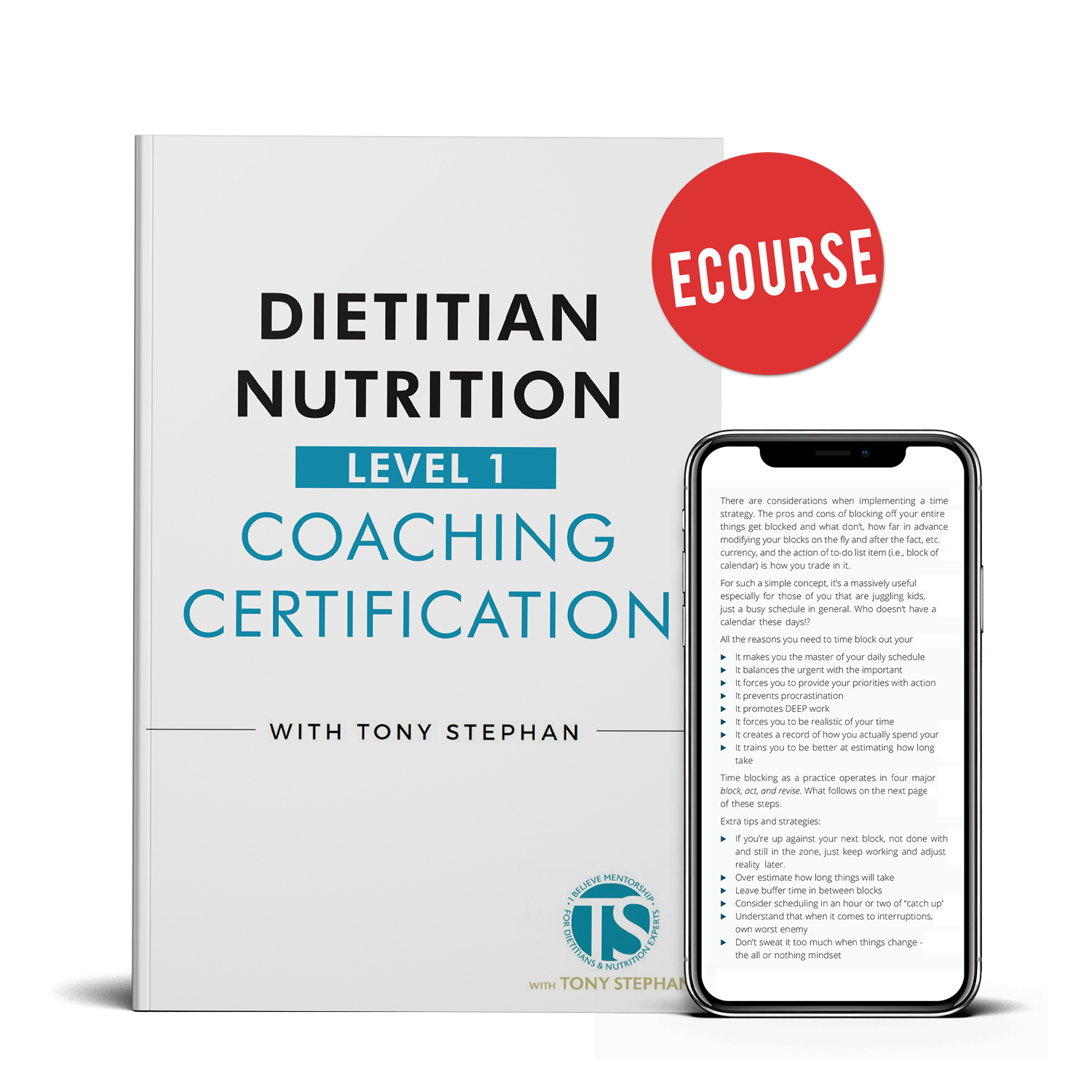“Superfoods” are specific food items that supposedly hold the key to good health due to their high antioxidant, vitamin, and mineral content. Do these foods really have more benefits than your average everyday fruits and vegetables, and should your nutrition coaching clients be consuming them? As dietitian nutrition coaches, questions like this are important to know so we can best coach out clients!
Examples of Superfoods:
- Goji berries
- Kale
- Chia seeds
- Flax seeds
- Green tea
- Coconut oil
- Acai
- Quinoa
- Avocado
- Hemp seeds
- Dark chocolate
Pros and Cons of Superfoods:
The major “pro” of superfoods is mainly that they truly do have a high nutritional density. This means that for a small amount of the item, it contains a large amount of vitamins, minerals, antioxidants, etc. For instance, one serving of hemp seeds provides over 100% of a person’s daily needs of omega-3s and around 70% of a person’s daily needs for omega-6s.
The major “con” of superfoods is that the products are usually pretty expensive and are not accessible to everyone. Avocados, for instance, do not always taste the best and are not always ready to be eaten. I don’t know about you, but almost every time I go grocery shopping the avocados are either as hard as a rock or way too soft and bruised!
Should Your Clients Be Consuming Superfoods?
Well, the simple answer is….not if they don’t want to.
As dietitian nutrition coaches, we need to make sure our clients understand that there is more to healthy eating than just focusing on nutrition facts labels. I talk about this more in the Dietitian Nutrition Coaching Certification, where I teach Dietitians how to connect their formal education to the real-world application of nutrition coaching.
Your client’s food preferences matter, they don’t need to force kale down their throat if they can’t stand how it tastes! If they like having iceberg lettuce in their salads instead, then that’s great. Sure, iceberg lettuce may not be as densely packed with nutrients as Kale, but it is still a great option, especially if that is what your client prefers!
Ultimately, the foods your clients should be choosing should be based on 5 different factors
- Their goals (weight loss, muscle gain, improvement in performance, maintenance, etc)
- Priorities (money, time, the gym, their kids, etc)
- Their unique body (allergies, medical conditions, etc)
- Preferences (like in the kale vs. iceberg lettuce example, your clients shouldn’t force-feed themselves foods they don’t enjoy just because the media deems it “super.”)
- Their current diet
Not one single food or ingredient is going to improve your health drastically or prevent diseases. You DO NOT need to eat kale salads to be “healthy.” You DO NOT need to eat quinoa if you prefer and enjoy white rice a lot more. In my eyes, every whole food should be labeled as “super.” Just because blueberries have more vitamin K than a banana does not mean the banana is inferior! Foods do not belong on pedestals.
Your nutrition coaching clients should choose what they eat based on what is most important to them, not by how “super” a food may be. What foods make your client feel good? THIS is what meals should be based on, not whether they are considered “super” or not.
Some Quick Tips Your Clients Can Focus on Instead of “Superfoods”
- Eating slowly
- Eating without screens around
- Eating a variety of whole foods
- Getting enough sleep
- Being physically active
- Being more mindful around food
- De-stressing
Are you a Registered Dietitian looking to take your online business to the next level? For more information about the Dietitian Nutrition Coaching Certification visit https://tonystephandietitian.com/dietitian-nutrition-level-1/#





